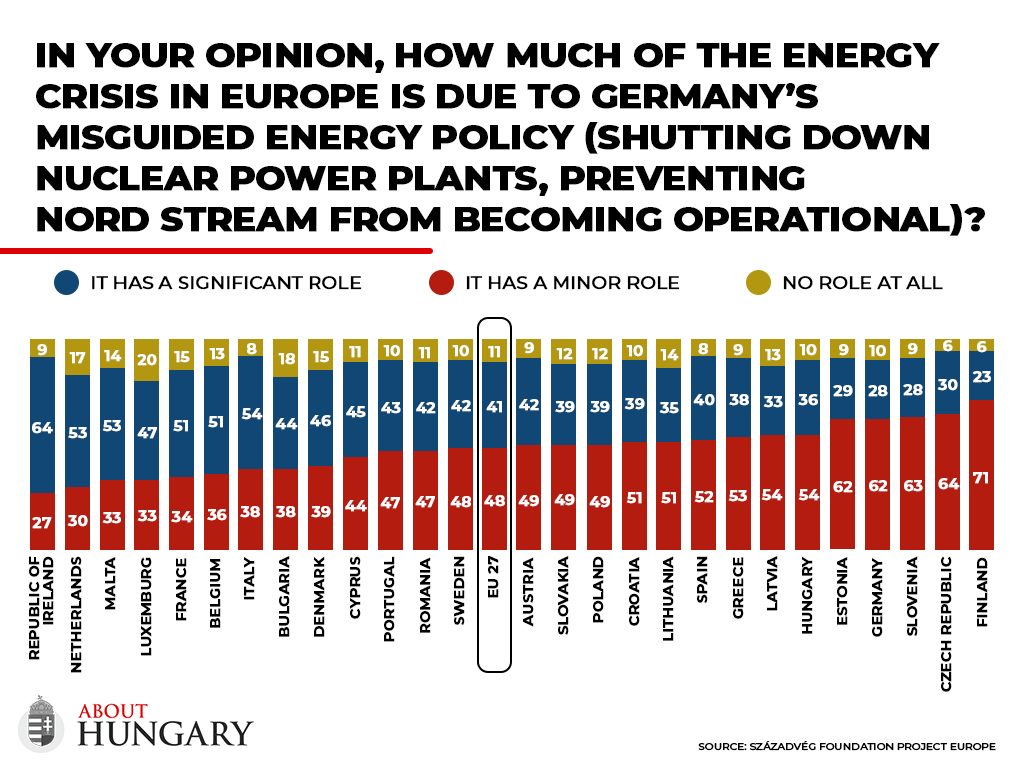Germany's energy policy is under more and more scrutiny as a result of the nation being held responsible for the current energy crisis in Europe. According to a recent Századvég survey, 89 percent of Europeans blame Germany's energy policy for the crisis, with 50 percent of those polled saying the country has had a significant role.
Germany's actions are being called out because the country has a stronger impact than other member states on the energy policy for Europe as a whole due to its size and political clout.
The capacity crunch in the EU electricity market is raging due to the shutdown of active German nuclear power plants. Meanwhile, the cancellation of the Nord Stream 2 pipeline has only further exacerbated the crisis with Russia, which decided to cut back the amount of gas it provides to the EU.
The cherry on top of this whole debacle was the German decision to nationalize the gas storage facilities located in Germany but owned by Russia's Gazprom and to stop trading gas with Russia within two years.
This prompted Russia to start limiting supplies on the Nord Stream 1 pipeline, alienating Russia and breaking their decades-long partnership with Germany.
In its latest survey, Századvég asked Europeans who participated in its previous Project Europe survey whether they concur with the criticisms leveled at Germany, specifically, whether they hold German energy policy accountable for the current energy crisis.
The results indicate that the majority of Europeans (89 percent) believe that Germany's misguided energy policy is to blame for the current energy crisis in Europe, and nearly half (48 percent) believe that Germany bears a significant portion of the blame.
Surprisingly, Germany has the highest percentage of people who believe that German ambitions played a significant role in the crisis after Slovenia, Finland, and the Czech Republic.
The sharp increase in utility costs in Germany is thought to have made the public more dissatisfied with governmental actions, while the high percentage of critics in the other three countries may be explained by the high levels of support for nuclear power among Finns, Czechs, and Slovenians; also, there is a high rate of opposition to sanctions among Czechs and Slovenians.
Hungarian respondents were also less complimentary of German efforts due to divergent views on the fundamentals of energy policy, with 52 percent believing that Germany played a significant role in the crisis.

